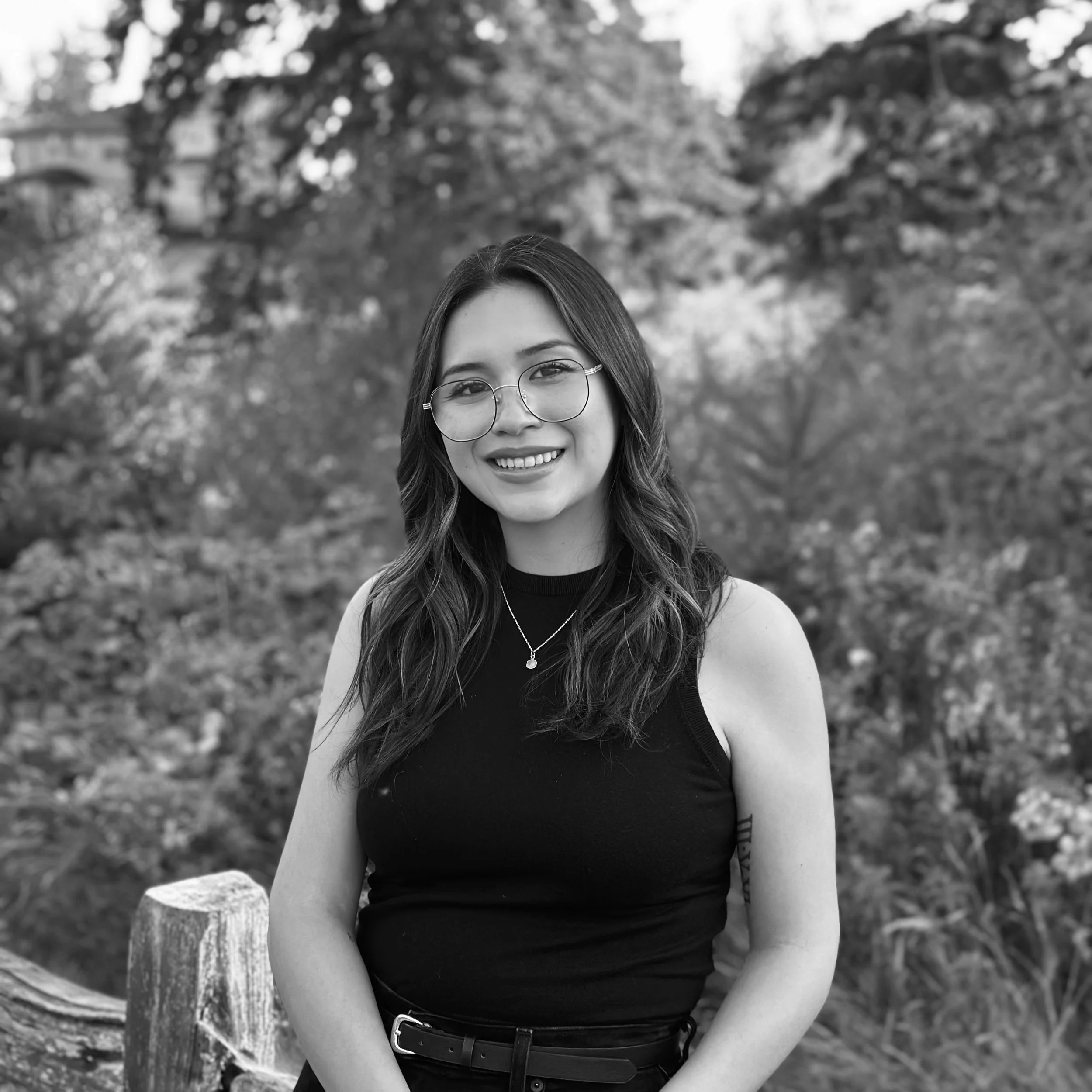Dianaly Galvez-Hernandez
Hi there! My name is Dianaly and I’m a Licensed Marriage and Family Therapist in Oregon. I grew up in Los Angeles as a bilingual and bicultural person and earned my Bachelor’s degree in Social Welfare and Social Justice from California State University, Northridge, and my Master’s degree in Clinical Psychology with an emphasis in Marriage and Family Therapy from Pepperdine University.
With over 10 years of experience in social services and mental health, I’ve supported people navigating a variety of transitions and hardships, including financial instability, domestic violence, trauma, and relationship challenges. My lived experience, combined with clinical training, has reinforced my belief that therapy isn’t one-size-fits-all; each person’s journey is unique. I strive to meet my clients where they are with warmth, empathy, and flexibility.
I am passionate about helping couples strengthen their connection, rebuild trust, and heal together. I have experience supporting couples through challenges such as infidelity, communication struggles, parenting, and major life transitions. I also work with adults and adolescents (14+) dealing with PTSD, complex and relational trauma, relationship concerns, postpartum challenges, life transitions, OCD, ADHD, depression, low self-esteem, and other anxiety disorders, including social anxiety, and panic disorders.
My philosophy as therapist is based on a person-centered, strengths-based, dialectics approach, while integrating evidence-based modalities.
What does this mean exactly?
Person-centered: I believe that genuine empathy, acceptance, and authenticity creates the foundation for growth and healing. I hold high regard and respect for each person’s unique journey.
Strengths-based: In the midst of pain and uncertainty, I focus on highlighting the personal strengths that a person has that can make the difference on how we learn to manage distress. This is not to be confused with “toxic positivity”. My aim is not to minimize how painful an experience is and only focus on positives, but to increase your insight on how our personal strengths and inner resources can lead to resiliency and growth.
Dialectical: This is a main principle in dialectical behavioral therapy. It means balancing seemingly opposing concepts and recognizing that they can exist at the same time, primarily acceptance and change. I believe that much of the distress humans experience is related to uncertainty and loss of control. My aim is to help tolerate the distress from things that are out of control (acceptance) and still, try to find ways to manage challenges in our life (change).
Please see below to learn more about the specific evidenced based modalities I use.
MA, LMFT OR License #T2951
Before becoming a therapist, I spent several years working in social services, where I gained firsthand experience supporting people through some of life’s most difficult circumstances. I’ve worked as part of the counseling support staff at a domestic violence shelter and with foster youth, served as a case worker for families experiencing housing and financial insecurity, and coached new parents navigating early parenthood. My first role as a therapist involved providing care for adults over 65 living with severe mental health conditions. These experiences taught me the importance of compassion, patience, and connection in healing.
I have had extensive training under DBT, CBT, Narrative, Trauma Resiliency, and Gottman modalities.
Cognitive Behavioral Therapy
A structured, evidence-based approach that focuses on identifying and changing unhelpful thoughts, emotions, and behaviors to improve emotional well-being and functioning.
Dialectical Behavior Therapy
An approach that blends cognitive-behavioral strategies with mindfulness principles to help individuals manage emotions, tolerate distress, and build healthier relationships.
Narrative Therapy
A collaborative approach that views people as separate from their problems, encouraging clients to re-author their life stories in ways that highlight resilience, meaning, and personal agency.
Gottman Couples Therapy
A research-based model for couples that focuses on improving communication, managing conflict, and fostering friendship and emotional connection.
Trauma Informed & Resilliency Care
A holistic framework that recognizes the impact of trauma, prioritizing safety, trust, and empowerment while fostering resilience and healing.
Family Systems Therapy
A relational approach that explores patterns and dynamics within families, viewing individual issues as interconnected with the larger family system
Emotionally Focused Therapy
An attachment-based approach that helps individuals and couples understand and restructure emotional responses to create stronger, more secure relationships.
Culturally Sensitive Therapy
An approach that recognizes and respects the influence of culture, identity, and lived experience on a person’s worldview. It emphasizes understanding clients within their cultural context and adapting therapy to be inclusive, affirming, and responsive to diverse backgrounds.
Solution-Focused Therapy
A brief, goal-oriented approach that emphasizes clients’ strengths and focuses on building solutions rather than analyzing problems.
Attachment Based Therapy
An approach grounded in attachment theory that helps clients understand how early relationships influence current emotional patterns and develop healthier, more secure connections.
Exposure and Response Prevention
A specialized form of therapy for anxiety and obsessive-compulsive disorders that helps individuals gradually face feared situations while reducing compulsive or avoidant behaviors.

